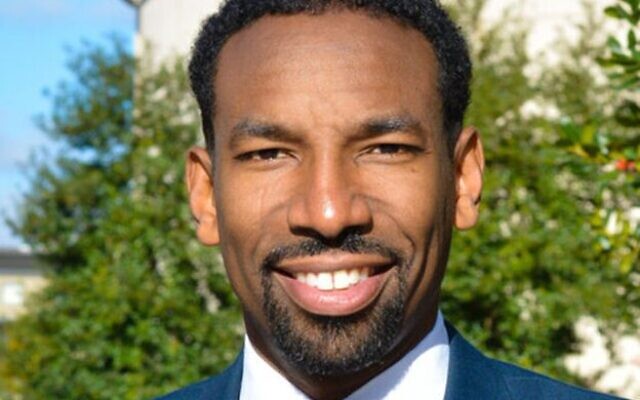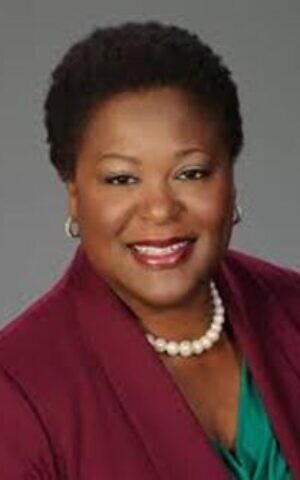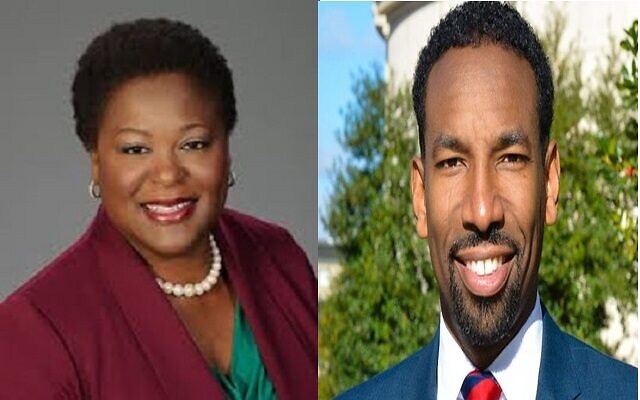Atlanta Mayoral Runoff in the Offing
Unofficial results show suburban mayoral incumbents winning re-election and education funding taxes approved.
Dave Schechter is a veteran journalist whose career includes writing and producing reports from Israel and elsewhere in the Middle East.
The 61st mayor of Atlanta will be decided by a Nov. 30 runoff between City Council President Felicia Moore and City Councilman Andre Dickens, the top two finishers in the Nov. 2 election.
Moore, who was elected to the Council in 1997 and as its president in 2017, led the field of 14 candidates with nearly 41 percent of the ballots cast. Dickens finished second with 23 percent, narrowly eclipsing former (2010-18) Mayor Kasim Reed, who received slightly more than 22 percent. Reed issued a concession statement on Thursday afternoon.
Moore told supporters late on election night, “These people have put their heart and soul and time and money and prayers toward a new Atlanta — an Atlanta where everyone is going to feel safe, an Atlanta where when you spend your money for taxes and services, you’re going to get an Atlanta that’s accountable, it’s going to be ethical and it’s going to be the most transparent in this country.”

Dickens, who was elected to the Council in 2013 as the At-Large Post 3 representative, led Reed by a margin of slightly more than 600 votes. Reed narrowly topped Dickens in Fulton County, but in DeKalb County, which makes up about 10 percent of the city, Dickens led Reed by a substantial margin.
Addressing supporters early Wednesday, Dickens said, “They said our campaign was over. They said my council career was dead. But you know what we did? We fought every single day for [this] city . . . So be careful. Be very careful of counting us out again.”
Reed had been considered a front-runner throughout the campaign.
“Although my campaign was unsuccessful, I still believe our city’s future is brightest as one that is united,” he said. “Like many others, I witnessed the tapestry of diverse communities that make up our city be torn apart by surging levels of violent crime. I ran to ensure that our city could restore its reputation as the economic and cultural engine of the Southeast, where opportunity thrives and everyone has a shot at realizing their dreams.”
As of this writing, election results remained unofficial and absentee ballots had not been counted. Voter turnout was about 21 percent in Fulton County, 13.3 percent in DeKalb County, and 9.5 percent in Cobb County.

The race for Atlanta City Council president also is headed for a runoff. Doug Shipman led with 30.9 percent, followed by Natalyn Mosby Archibong with 27.9 percent, and Courtney English with 25.1 percent. Archibong’s strength in the DeKalb County portion of the city overcame a deficit to English in Fulton County.
In the race for Atlanta City Council At-Large Post 1, Brandon Cory Goldberg, who is Jewish, was running second among five candidates, with 15.8 percent of the vote, while incumbent Michael Julian Bond held 59.3 percent.
In Johns Creek, John Bradberry led Brian Weaver, 59.8 percent to 40.2 percent, in a contest to succeed Mike Bodker, who has been mayor since the city incorporated in 2006. Bodker, who is Jewish, had announced in 2018 that he would not seek re-election.
Mayors winning re-election included Rusty Paul in Sandy Springs, Steve Tumlin in Marietta, and Frank Auman in Tucker.
Measures to extend sales taxes to support education were ahead by comfortable margins in Cobb, Fulton, and DeKalb counties.
The Atlanta mayoral race opened up when Mayor Keisha Lance Bottoms announced in May that she would not seek a second term.
A poll conducted Oct. 6-20 by the University of Georgia School of Public and International Affairs — commissioned by the Atlanta Journal-Constitution — asked respondents to identify “the most pressing issue currently facing the City of Atlanta.” Crime led with 47.9 percent, followed by affordable housing, 26.2 percent; income inequality, 8.6 percent; coronavirus, 4.2 percent; corruption, 3.7 percent, and traffic congestion, 3.7 percent. Nearly 70 percent said that the city was headed in the wrong direction in its handling of crime, and more than 60 percent said the same about affordable housing.
As of Oct. 9, homicides in the city were up 15 percent compared with the same period in 2020 and up 63 percent compared with 2019. The city also has recorded increases in shootings and aggravated assaults. Public attention was heightened by the stabbing death of a woman walking her dog at night in Piedmont Park and a bartender abducted and shot to death as she returned home from a late shift. Additionally, spikes in some form of crime in Buckhead have been at the center of the movement to secede from Atlanta and create a new Buckhead City.
This was the most significant election conducted since the Republican-controlled General Assembly passed and Republican Gov. Brian Kemp signed into law Senate Bill 202, Georgia’s controversial voting law. Local media reported that voting Tuesday mostly went smoothly. Difficulties in Fulton County, which could see a state takeover of its election board under the new law, were observed by state-appointed performance review panel.
- Dave Schechter
- News
- Local
- Atlanta City Council
- Felicia Moore
- Andre Dickens
- Mayor of Atlanta
- Kasim Reed
- Atlanta
- Fulton County
- DeKalb County
- Cobb County
- Campaign
- economic
- cultural engine
- Southeast
- Absentee ballots
- Runoff
- Doug Shipman
- Natalyn Mosby Archibong
- Courtney English
- Brandon Cory Goldberg
- Michael Julian Bond
- John's Creek
- John Bradberry
- Brian Weaver
- Mike Bodker
- Mayor Keisha Lance Bottoms
- Mayor Rusty Paul
- Sandy Springs
- Steve Tumlin
- marietta
- Frank Auman
- Tucker
- Education
- Taxes
- University of Georgia School of Public and International Affairs
- Crime
- affordable housing
- income inequality
- Coronavirus
- corruption
- traffic congestion
- Homicides
- piedmont park
- Buckhead
- Buckhead City
- Senate Bill 202
- General Assembly
- Governor Brian Kemp




comments